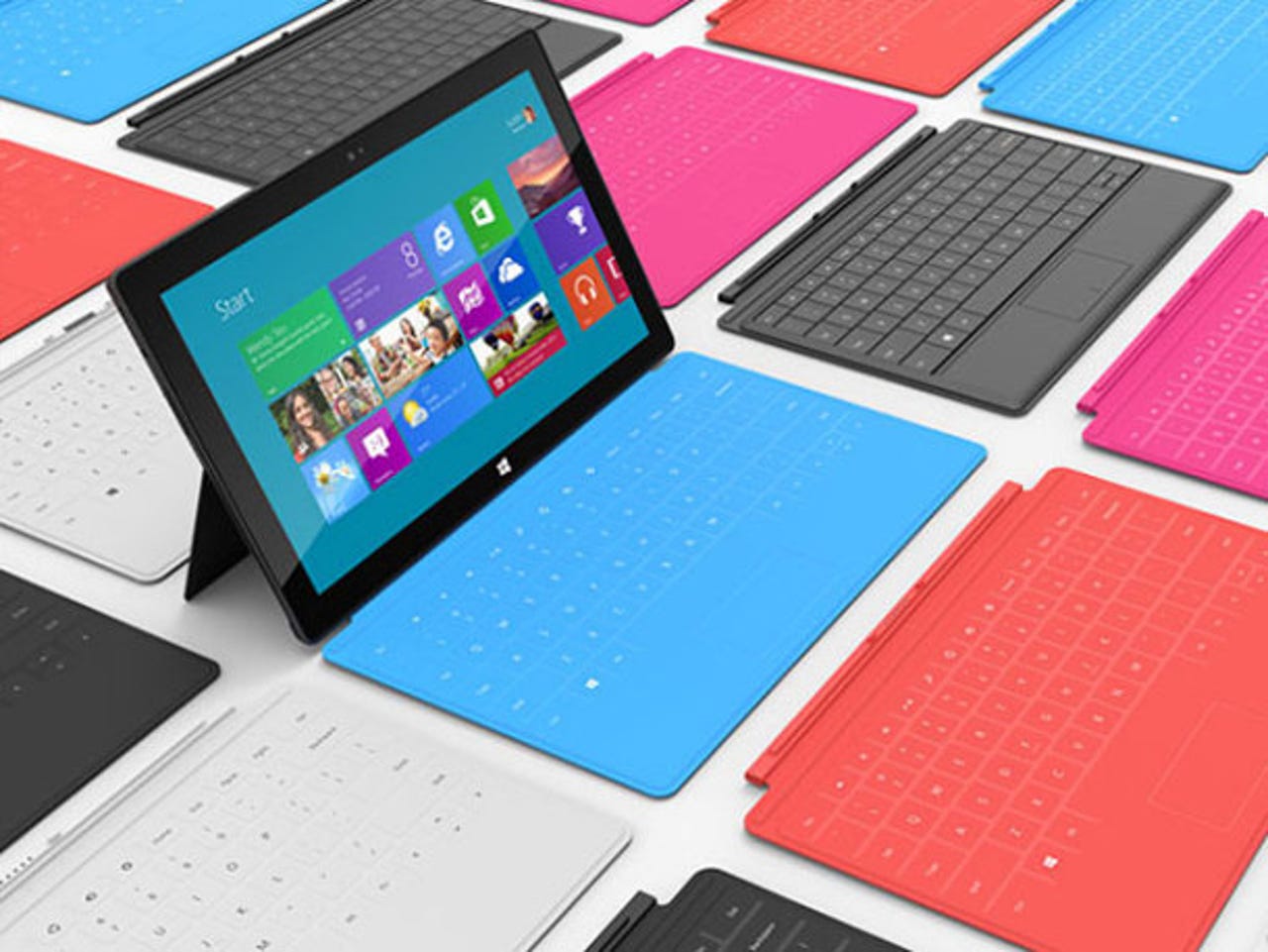Implementation and apps the key to Surface RT tablets


Microsoft surprised me with the unveiling of the Surface tablets. While many seem to be anxious for the Surface Pro version running Intel-based Windows 8, the RT version running on real tablet hardware has me stoked. I am anxious to see how well the Windows RT version of Windows 8 works on the Surface RT hardware.
How well the Surface RT tablet is received by the public will ride in large part on implementation and apps. The implementation of Windows 8 for the ARM-based hardware must be as good out of the box as competing mobile platforms. It must work seamlessly and not feel like Windows slapped on a tablet like in versions past.
Related:
- Scuttlebutt: Surface tablet with Windows Pro the favored flavor
- Microsoft Surface tablets: Content creation devices?
- Mobile space to heat up, Windows 8 may benefit from BYOD
- Microsoft Surface tablets: A natural fit for healthcare
- Ecosystem lock-in may just break the Surface
- Microsoft Surface tablets: High-end hardware but better be cheap
The apps will be just as important to get buyers stoked about the Surface RT, and not only an impressive selection. How well the apps are written for the tablet hardware and form will be as key as the selection of apps. Apps must feel like they were developed especially for the touch tablet, and not like non-touch apps dropped on the tablet.
It may only be logical to state that the implementation of Windows 8 RT is critical to the success of the Surface RT tablet, but it is worth being upfront about it. Microsoft wants to make a serious run in the tablet space and Windows RT must be written for the genre through and through.
Microsoft has added functionality to past versions of Windows to handle tablets, but it always felt like an afterthought so they could say they did it. The user experience clearly made users realize the touch tablet features were just slapped on top of regular Windows. That cannot be the experience for buyers of the Surface RT tablet.
Windows RT must be able to run the Surface RT tablet on its own. By that I mean that even though Microsoft is offering keyboard covers that look really useful, the user must be able to use the Surface sans keyboard without compromise. The keyboard should be a welcome addition for the user, not required to get the full benefit of Windows RT. This cannot be overstated, it is vital to provide the proper tablet user experience with the Surface RT.
This is a real concern I have with the Surface RT. It will be so easy for Microsoft to rely on the tablet keyboard, perhaps even pushing it as an advantage over the competition. That would be a mistake as tablet buyers demand the ability to use just the tablet without compromise. The keyboard handling must be an additional benefit, not a requirement to get full use out of the tablet.
If Microsoft gets the implementation of Windows RT right on the Surface RT half the battle is done. Only half, as apps are just as important to the reception of the tablet.
It's not just the selection of apps that is critical, even though that's what most people usually think when you say apps are important. Having the apps that buyers want will be important at launch, but how the apps are handled just as much so.
By that I mean that Surface RT apps, which we used to call Metro apps, need to be easy to buy and install. Microsoft seems to understand that with the online store, but it goes beyond that.
Buyers will expect Surface RT apps to work like the competition. Buy once and run on multiple devices. That's the way it works on iOS and Android and tablet buyers will expect the same from Microsoft. That's where it will get complicated since the Windows platform also covers "full" Windows 8 apps. If the term "bulk licensing" comes into play it will be a bust.
Developers and Microsoft may not expect buyers to want to install a $5 tablet app on their other Windows systems, but I can guarantee they will. That's the price of branding the Surface RT as part of the Windows family rather than a separate mobile platform. Owners will want to buy an app once and use it everywhere in the Windows ecosystem.
Perhaps that's what Microsoft intends, but that can't be popular with developers used to selling single licenses for Windows apps. Surface RT tablet buyers are going to expect, even demand, that apps work the same as on the other mobile platforms. If it doesn't there will be a lot of confused and unhappy customers.
Developers of Windows RT apps need to resist the urge to make their apps do lots of things at the expense of being easy to use. I've said it before but it bears repeating -- the best mobile apps are the ones that do one thing better than other apps. Even though Windows RT is "Windows" the apps it will run are indeed mobile apps. Make them function-specific and good at that function. Apps designed with the "everything and the kitchen sink" approach will not be popular with tablet users.
Microsoft has shaken up the mobile world with the Surface tablets, and it is an exciting time in the company's history. The Surface tablets, computers bearing Microsoft's own brand, are a bold move that look to redefine the PC space. While competing in the hardware world requires hitting point on design and pricing, in this case the implementation and apps will be just as critical for success.